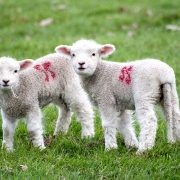The Future of GMO
Fishing for Better Genetics
It has been some time since genetically modified organisms (GMO’s) became commercialized around the world. Amongst the most common changes that the world has seen up to now was herbicide and insect resistance of plants. For example, Canadian consumers will soon get access to a genetically modified salmon that can grow to market size in half the time as regular salmon. It also requires less feed.
As one can see from this and the approval thereof by regulatory authorities, genetically modified crops and other GMO food can potentially reduce the input costs of the food industry significantly.
The Future of GMO Food
There are many developments in the area of genetically modified food that the world can expect to be realized in the future. This includes things such as pigs that are resistant to disease, dairy cows without horns, and chickens that are resistant to bird flu. Sheep are also expected to become more productive in terms of wool and mutton production.
All of this sounds interesting, but food producers should not hold their breath as these developments may take years to become a reality – if they ever do. The developments that already saw the light of day, however, are playing an integral part in the production of biotech crops.
Resistance of Pests
Resistance to herbicides and insects is a past development that will continue to be improved and expanded, especially since some organisms of weed are becoming resistant to non-selective systemic herbicides like glyphosate.
The prioritization will, in future, also start to shift from new technologies to improved management practices. This is because, as more insect-resistant crops are being planted, insects themselves are becoming more resistant to developments in technology. Since this battle between pests and technology can’t continue forever, crop management will start to see its own improvements and developments, like planting crops that are not genetically modified next to GM crops.

Obstacles for GMO’s
In the future, the GMO food industry may be facing much more challenges than resistant insects and weeds. Regulatory authorities don’t take these practices lightly and getting them approved can be a headache to role players in the GMO industry.
The introduction of new genes into animals is also an issue that requires consumer acceptance. This means that certain developments in the future of GMO food will not only be limited by technological limitations, but also by social ones.
Changes in Technology
Technologies like genome-editing tools are constantly being improved and it allows for the introduction of new genes into organisms. Not only do these developments allow for more affordable and quicker genetic modification, but it also makes it possible for more and smaller role players to take part in genome editing and genetic modification of organisms.
Conclusion
Predicting GMO’s of the future is not that easy. There are many different factors at play which include the management of risks and the approval of the international community. Government regulations are also a barrier that can inhibit GMO developments. In the long-haul, chances are that GMO foods will bring about significant changes in food production.



